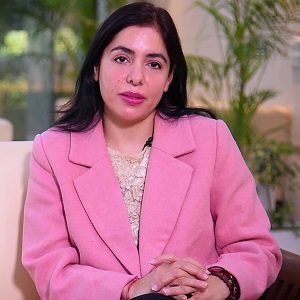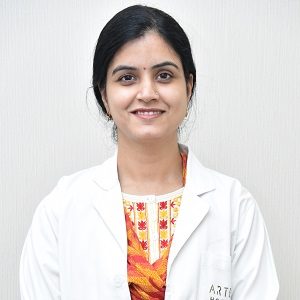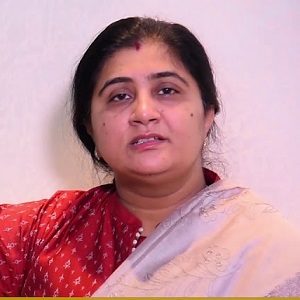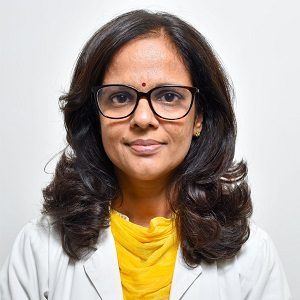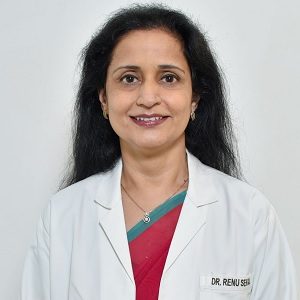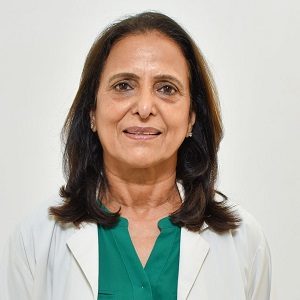Best Doctors in India for Polypectomy
- Obstetrician & Gynaecologist, Gurugram, India
- Over 17 years’ experience
Profile Highlights:
- Nidhi Rajotia is one of the best Gynecologists who has over 17 years of experience in obstetrics and Gynecology.
- She has a therapeutic focus on high-risk pregnancies, infertility treatment counseling, ovulation induction, follicular monitoring, hormonal treatment, IUI, and IVF in addition to open and laparoscopic gynecological surgeries.
- Obstetrician & Gynaecologist, Gurugram, India
- 20 years experience
Profile Highlights:
- Parvinder Kaur Arora is a renowned Gynecologist, Obstetrician & Laparoscopic Surgeon in Delhi NCR.
- She went under training in Laparoscopic surgery and Gynaec oncology.
- She completed a fellowship in minimally invasive surgery and achieved the first position in the course.
- Obstetrician & Gynaecologist, Gurugram, India
- Over 14 years’ experience
Profile Highlights:
- Dr. Pooja Bhatia Marwaha is a well-known gynecologist and obstetrician in Delhi/ NCR.
- She is proficient in the clinical and surgical management of women’s problems. Her expertise includes Antenatal and Postnatal Exercise, Cancer Screening, Breast Cancer Screening, Menopause, Pre and Post Delivery Care, and Physiotherapy.
- Obstetrician & Gynaecologist, Gurugram, India
- Over 15 years’ experience
Profile Highlights:
- Priyanka Mishra is a renowned doctor for Obstetric & Gynecological issues in Delhi/ NCR.
- She has completed MBA in Hospital and Healthcare management from NIBM.
- Priyanka Mishra has used her extensive experience to provide consultation for women’s problems and treatment.
- Obstetrician & Gynaecologist, Gurugram, India
- Over 20 years’ experience
Profile Highlights:
- Dr. Smita Vats is a dedicated gynecologist & obstetrician in Delhi/ NCR. She received extensive training in advanced gynecological endoscopy, laparoscopy, and hysteroscopy from renowned surgeons in India and abroad.
- Dr.Smita Vats is especially interested in infertility treatments, gynecologic endoscopic surgeries, high-risk pregnancy management, and adolescent and menopausal issues.
- Obstetrician & Gynaecologist, Gurugram, India
- Over 18 years’ experience
Profile Highlights:
- Dr. Asha Sharma is one of the best Gynecologists & Obstetricians in Delhi/ NCR. She practices Laparoscopic Surgery (Obs & Gyn) to assist patients with their Gynaec problems.
- The doctor provides consultations and checkups for maternal care, PCOS/PCOD, egg donation, diseases in pregnancy, irregular or excessive bleeding, and other menstrual disorders in adolescent girls, etc.
- Obstetrician & Gynaecologist, Gurugram, India
- Over 35 years’ experience
Profile Highlights:
- Dr. Nutan Agarwal is an eminent Obstetrician & Gynecologist.
- Dr. Nutan Agarwal is credited with pioneering various PCOS medications in India, such as Metformin and myoinositol.
- She has also developed several treatments, such as ablation in multiple pregnancies, and formulated a guideline for managing irregular uterine bleeding in the Indian context.
- Obstetrician & Gynaecologist, Gurugram, India
- Over 25 years’ experience
Profile Highlights:
- Dr. Renu Raina Sehgal is a renowned Gynecologist in Delhi/NCR, having 25+ years of rich experience in the field.
- Dr. Renu Sehgal specializes in obstetrics, menopause, infertility, and advanced gynecological laparoscopy and has extensive experience in several other gynecological procedures. In addition to this, she is an expert medico-legal consultancy.
- Obstetrician & Gynaecologist, Gurugram, India
- Over 40 years’ experience
Profile Highlights:
- Dr. Veena Bhat is a senior obstetrician and gynecologist. Her clinical interest lies in Endoscopic management of infertility, Adolescent Gynecology, High-risk pregnancy, Menopausal health, and Minimal invasive surgery in Gynae.
- The doctor performs Gynecological Endoscopy, both Laparoscopy & open (Hysteroscopy); Laparotomy, Endometriosis Surgery, Ovarian Cystectomy, and myomectomy with decent success.
- Gynecologist, Gynae-Oncologist, Gurugram, India
- Over 18 years’ experience
Profile Highlights:
- Dr. Dimple K Ahluwalia is one of the prominent Gynae-oncologists at Medanta-The Medicity at Gurugram in India.
- She has years of experience in treating serious and critically ill patients from different parts of the country.
- She has won numerous awards and honors for her countless contributions to the field of medicine.
Best Hospitals in India for Polypectomy
Polypectomy
Polypectomy is a procedure which is for removing polyps from the inside of your colon, i.e. large intestine. An abnormal collection of tissue is termed as a polyp. The polyps which are removed might be causing symptoms or may even be cancerous. Most polyps are however non-cancerous.
This procedure is noninvasive and is generally carried out at the same time as a colonoscopy.
Purpose
Tumors of the colon generally begin as a benign growth before they become cancerous.
First, a colonoscopy is performed to detect the presence of any polyps. If your doctor detects them, he/she will choose to perform a polypectomy. Then the tissue is examined to determine if the growths are benign, precancerous or cancerous. Thus, this procedure can help you in preventing colon cancer.
Generally, polyps are not associated with any symptoms at all. But larger polyps may lead to problems such as rectal bleeding, bowel irregularities and abdominal pain.
A polypectomy can help you to relieve these symptoms.
Preparation
Depending on the surgical technique and the location of the polyps, preparation for a polypectomy can vary.
Before the colonoscopy is performed prior to the polypectomy, your doctor will need your large intestine to be clear, so that there won’t be any kind of visual obstruction. Due to this reason, you will be asked to thoroughly empty your bowels for a day or two before your procedure. You might receive laxatives and need to have a clear food diet.
Procedure
First, you will need to change into your hospital gown, after which you will receive an anesthetic for the procedure so that you will not feel any pain. You might be asked if you have had any kind of negative reaction to anesthetic before.
The procedure should be relatively quick. It can take between 20 minutes to an hour.
A polypectomy can be performed in several ways. The way your doctor chooses will depend on what kind of polyps are in your colon.
Snare polypectomy
In snare polypectomy, the doctor will loop a thin wire around the bottom of your polyp. Then he/she will use heat for cutting off the growth. If any tissue or stalk is remaining, it is cauterized.
Due to the large size large or configuration of some polyps, it might be technically more challenging to remove them. In such cases, your doctor might choose endoscopic mucosal resection (EMR) or another technique termed as endoscopic submucosal dissection (ESD).
Endoscopic mucosal resection (EMR)
In EMR, your doctor lifts the polyp from the underlying tissue using a fluid injection before he/she performs the resection. The injection is generally made of saline. The doctor removes the polyp one piece at a time. This is called a piecemeal resection.
Endoscopic submucosal dissection (ESD)
In ESD, your doctor injects the fluid deep in the lesion, after which the polyp is removed in one piece.
Bowel surgery might sometimes be required for some larger polyps which can’t be removed endoscopically.
After the polyp is removed, it is sent to a pathology laboratory to see if it is cancerous. The results can take over a week to come back, though in some cases, it might take longer.
Aftercare & recovery
If your polyps are not cancerous, you won’t need to undergo any further treatment.
Generally, recovery from a polypectomy takes around 2 weeks. Patients might feel some pain immediately after the procedure. Some level of bleeding is normal, though you should call the doctor if you experience heavy bleeding.
You should receive instructions from your doctor about caring for yourself. He/she might ask you to avoid a few kinds of foods and drinks which might cause irritation in your digestive system. These can include coffee, tea, soda, alcohol and any kind of spicy food.
You might also be scheduled for a follow-up colonoscopy. It is also quite important to check if the polypectomy was a success and that no other polyps have developed any further.
Risks
Like all procedures, polypectomy carries some risks. Those include-
- Organ perforation: This can occur if the organ operated on, gets punctured. This can be fatal, although it is rare.
- Infection: Polypectomy creates a wound, which in some cases, might get infected. Infection is more likely when patients ignore doctor advice or are in poor health already.
- Excessive bleeding: Sometimes the wound fails to heal properly, thus causing excessive bleeding.
- Incomplete removal: If some tissue is left behind, a second polypectomy might be required.

